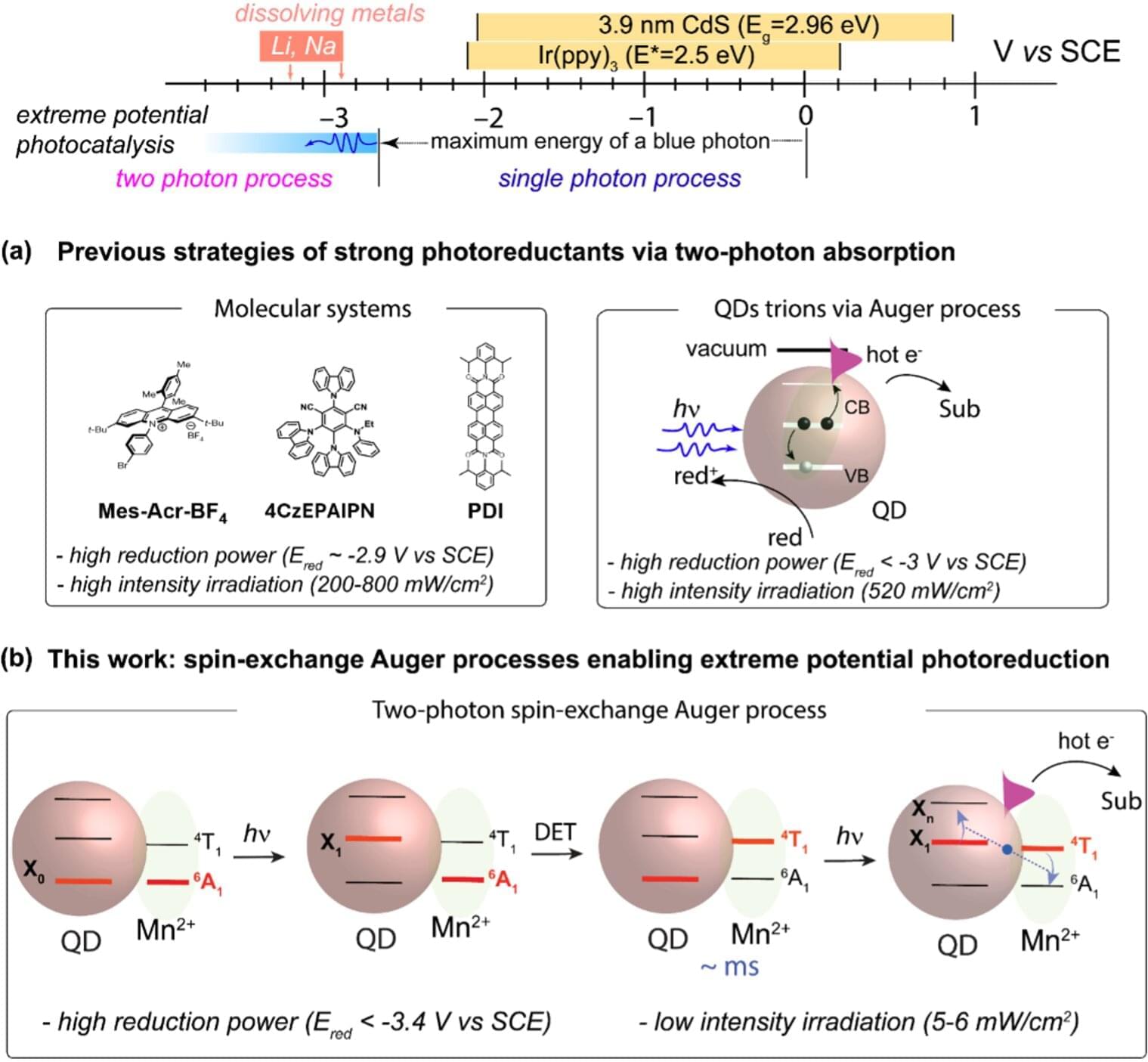Chemists at the School of Science of the Hong Kong University of Science and Technology (HKUST) have recently made significant progress in photocatalysis by unveiling a “super” photoreductant, marking a major advancement in organic synthesis.
Quantum dots (QDs) hold great promise as photocatalysts for promoting photoredox chemistry. However, their application in photocatalytic organic transformations has lagged behind that of small molecule photosensitizers due to the limited understanding of their photophysics.
While various studies have explored the generation of hot electrons from QDs as a strategy to enhance photoreduction efficiencies, achieving effective hot-electron generation under mild conditions has posed a significant challenge.
